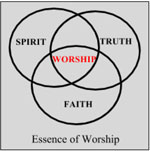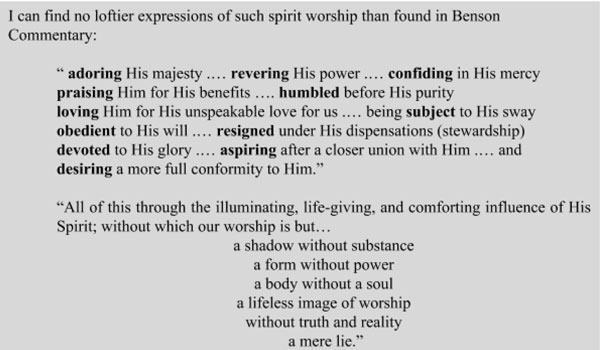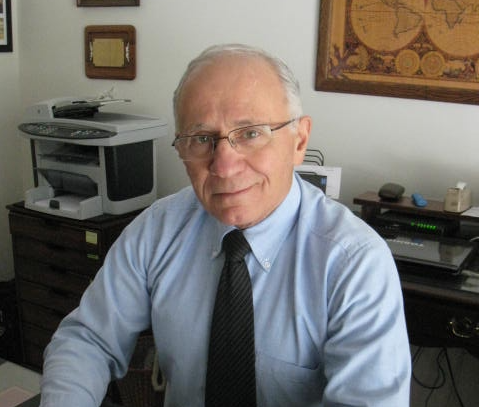“Who may ascend into the hill of the LORD?
And who may stand in His holy place?
He who has clean hands and a pure heart,
Who has not lifted up his soul to falsehood
And has not sworn deceitfully.
He shall receive a blessing from the LORD
And righteousness from the God of his salvation.
This is the generation of those who seek Him,
Who seek Your face—even Jacob.” (Ps. 24:3-6)
When asked, “Why did you want to climb Mount Everest?” Mallory replied, “Because it’s there.” There was no further explanation necessary. Mallory assumed others would understand this innate desire to respond to the call of this majestic mountain. It seems humanity has this deep-seated sense of awesomeness for the mountains and is drawn to them in one measure or another. Some may be satisfied viewing pictures or documentaries of mountains, while others may travel to see them, or hike or even climb the mightiest peaks. This longing cannot be accounted for by nature alone, it might well be a residue or vestige of something beyond this world, something within man that attempts to respond to an upward call…of God.
A man, a colleague of mine with whom I worked many years, is an avowed atheist. Not only does he not believe in a god, he does not believe in anything spiritual. His bottom line is the need for “scientific evidence.” However, there remains even with this man a beckoning, an upward call. Being devoid of any sense of spirit, his only response is a natural one—his soul is yet drawn to the mountains. His passion was to trek in the Himalayan Mountains. His home now is in the foothills of the Rockies where he can see its majestic peaks and frequent its call to come up. So he travels to the high places whenever possible, and his soul is at least temporarily satisfied though his spirit lies dead within, unresponsive to God. He is the epitome of Romans 1:20, 25, “For since the creation of the world His invisible attributes, His eternal power and divine nature, have been clearly seen, being understood through what has been made, so that they are without excuse…. For they exchanged the truth of God for a lie, and worshiped and served the creature (creation) rather than the Creator, who is blessed forever.”
Moses was drawn to these high places where he discovered the reality of God and His personal call upon his life. Abraham was instructed to take his son, Isaac, to “one of the mountains which I shall tell you (Mt. Moriah),” where he was to offer his son as a sacrifice. Of course, God provided a substitute sacrifice. David would write in his psalms, “I lift up my eyes to the mountains—where does my help come from?” Isaiah, while prophesying of the second coming of Christ, wrote, “O Zion, you who bring good tidings, get up into the high mountain.” And it was near Mt. Zion, on the Mt. of Olives, where Jesus prophesied to His disciples events of His second coming. It was later upon this same mount that Jesus, then crucified and resurrected, met and spoke with His disciples. Then, as they watched Him ascending into a cloud, an angel said to those disciples that Jesus would return in like manner. John was carried away in the spirit by an angel to a great and high mountain where he saw in a vision the heavenly city Jerusalem descending out of heaven from God. Throughout the Old and New Testaments high places, mounts, and mountains hold special spiritual significance.
To ascend, be lifted or carried up is but figurative of drawing near God. The natural high places are a shadow of a spiritual ascent—of the lifting up of one’s whole heart, mind, and spirit to God. The Samaritan woman at the well of John 4 asked Jesus which mountain is the true place of worship, Mt. Gerizem in Samaria or Mt. Zion at Jerusalem. Not all high places determined to be places of worship were true places of worship. Some were places of idol worship, an offense to God. In this instance, Jesus’s response to this Samaritan woman would forever change the nature and concept of worship. No longer would worship involve the outward means of place, buildings, altars, sacrifices, feast days, and rituals. Jesus’s reply set forth an altogether new form of worship…in SPIRIT and TRUTH.
To understand the essence of worship, we must turn to the scriptural account on the discussion of worship between Jesus and the Samaritan woman He met at the well. It is a familiar story, but it would be good to read a portion of it. The Samaritan woman addressed Jesus first…
“Our fathers worshiped in this mountain, and you people say that in Jerusalem is the place where men ought to worship.”
Jesus said to her, “Woman, believe Me, an hour is coming when neither in this mountain nor in Jerusalem will you worship the Father. You worship what you do not know; we worship what we know, for salvation is from the Jews. But an hour is coming, and now is, when the true worshipers will worship the Father in spirit and truth; for such people the Father seeks to be His worshipers. God is spirit, and those who worship Him must worship in spirit and truth.” (Jn. 4:20-24)
The Object of Worship: God the Father
The fact is not coincidental that the Father is mentioned here three times as the focus of worship. The woman simply talked of worship, in general, probably having in mind altar sacrifices, tithes, and other rituals. Jesus brings before her the great Object of all acceptable worship—the Father. The emphasis Jesus laid upon this name for God came with great force, repeating “Father” three times, requiring a new revelation of God’s relation to man. God’s name is not Vengeance to be appeased, nor Power to be feared, nor King to be as a servant, and not Aloof to be unapproachable. When Jesus appeared to Mary Magdalene after His resurrection, He said, “I am ascending to My Father and your Father…” (Jn. 20:17) Jesus is eternally the Son of God, but the revelation of true fatherhood came in His own incarnation. Jesus, both physically and spiritually, manifested this filial relationship. And now, believers born of His divine seed are proclaimed “sons of” God (Rm. 8:18)—that, “He would be the firstborn among many brethren.” (Rm. 8:29) Once God was called Father because of a Creator/creation relationship, but now through Christ, He is Father by spiritual birth. It is overwhelming to consider the magnitude of this supernatural impartation of life.
This is the God and Father to draw near to, to ascend in spirit in worship and adoration. He is not an isolated, unapproachable God found seated in the heavens to which prayers, sacrifices, and praises are carried upward in rising smoke or incense. Any gulf between God and man has been bridged by the cross of Christ. In terms of the God of creation, “He who is the blessed and only Sovereign, the King of kings and Lord of lords, who alone possesses immortality and dwells in unapproachable light, whom no man has seen or can see.” (1 Tim. 6:15-16) But concerning God the Father, it is written, “for such people the Father seeks to be His worshipers.” The yearning of the renewed human spirit is that of a child seeking the Father of his being. The seeking is not only on the human side. The Father also seeks His child, even as in the Biblical account of the prodigal son, whose father sees him when he is a great way off (Luke 15:20).
Such a coming together of fellowship must be after the manner and determination of God the Father, not after that of man. The Father is Spirit, therefore the manner of this worship, must be as He is, in spirit and truth. All other modes of worship, however sacred, and somber, and noble they may appear, fall short and are mere shadows of this spiritual reality. This counsel and decree of Christ was emphatic, it is absolutely necessary to worship the Father in spirit and truth. This is the sole basis and hopeful encouragement of this message, to explore the heart of our Father in worship.
TRILOGY OF WORSHIP
Two thoughts became clear as I considered this message on worship. First, there was a strong encouragement in the spirit to do so. There was a sense of need for such a message to be delivered to the present day Church. Please do not receive such a statement as arrogant and judgmental. This discernment senses a falling short of worship in spirit and truth. The expression that the Father has to seek such to worship Him, implies that such worshippers are very rare, and not easily found. This gate to spiritual worship is narrow. May we never become satisfied or complacent in worship, or strive only to improve the quality and quantity of worship. We must never forsake the nature or essence of worship itself.
The second thing that became painfully obvious was, though I thought I had the message in me ready to put to the pen, I quickly discovered the need to empty myself of preconceived notions and to draw near to the Lord afresh. After all, “Except the LORD build the house, they labor in vain that build it.” (Ps. 127:1) Though I have gained much understanding of worship over the years, there is yet a need for the ministry of His Spirit to bring depth, clarity, and understanding.
Essence of Worship: The Trilogy of Faith, Spirit, and Truth
The “essence of worship” represents distinctive attributes unique to itself, without which it would lose its true identity. It would be like man being body and soul, but missing the essential quality of spirit. He would be incomplete, unable to function in the dimension of the Spirit. Faith is a foundational pillar to our entire spiritual walk. Without faith the guise of religion enters, things of the Spirit become dim, and worship is reduced to hymn books and rituals.

True worshippers, as Jesus referred to in John 4:23, must be in harmony with the nature and will of God. If such worship is to be true, genuine, real, and perfect, it must be offered in spirit and truth—by which faith is man’s only link.
There are many things that may be added to the essence of worship but are not indispensable to it. These are nuances to worship often brought about by culture, tradition, worldly mixture, talents, and emotions. Whether we sit, stand, or kneel are options. So too are whether we sing, chant, or simply bow; use instruments or sing ‘a cappella’; follow rituals, liturgies, or be spontaneous; have a worship team, choir, or none at all; operate with or without electronic aids; or have present icons and symbols, or a room only with chairs. All such things may or may not be added to worship. Their presence or absence does not make worship! Some may aid in eliciting an emotional or spiritual response in worship, but to others some of these practices are a distraction from worship.
All these outward expressions are ineffective if the three elements of the essence of worship are not present. If faith, spirit, and truth are not present, they may be dispensed. These externals, or settings, for worship may aid in separating from the surrounding world. However, one thing for certain, once any of these become a focus or a distraction in any way, it hinders spiritual worship. I once read in a commentary, “Ritual cannot be discussed without risk of spiritual loss.” This is serious. A shadow is not the reality of the object. A shadow of worship is not truth, but is extraneous to the truth having only a vague outline of truth.
First: The Element of Faith
This subject will not be elaborated upon here because much has already been written in this series on the element of faith. (See Chapters 9 and 10) Perhaps only a reinforcement of some important key aspects of faith will be given, such as its definition in Hebrews 11:1:
“Now faith is the substance of things hoped for, the evidence of things not seen.”
Simply put, faith only has application outside the realm of the senses and emotions. It is having confidence in intangible things like Godly promises, truths, and revelations. It is having the full expectation of their reality coming into one’s life, now and in eternity to come. Though these may be spoken of, or written about, by which we see the script or hear the message, they never-the-less are the things not seen but only hoped for. This certainly includes all that is written in the Holy Scriptures regarding such things as the revelation of God (Father, Son, and Holy Spirit), regeneration, the promises of salvation, resurrection, and eternal life to name but a few…things. The true operation of the gifts of the Holy Spirit, such as prophecy and knowledge, may add to these things which are not seen, but require faith.
Consider the following scriptures:
“though you have not seen Him, you love Him, and though you do not see Him now, but believe in Him, you greatly rejoice with joy inexpressible and full of glory, obtaining as the outcome of your faith the salvation of your souls.” (1 Pet. 1:8) And,
“while we look not at the things which are seen, but at the things which are not seen; for the things which are seen are temporal, but the things which are not seen are eternal.”
(1 Cor. 4:18)
So, do you see that the invisible things of worship, such as spirit and truth require faith? It demands confidence in the unseen promises and realities of God, as documented in the Holy Scriptures and revealed by the Holt Spirit. Faith demands conviction!
Faith makes spiritual reality real, something the senses and emotions of man cannot do, for they only operate in natural reality. Take, for example, one who is attending a typical Sunday church service. If I were to ask the individual, “Are you in a worship service?” He would probably look at me inquisitively and say, “Look around, isn’t it obvious that I am in a place of worship?” However, if I were to ask the same individual, “Are you also this very moment seated with Christ in heavenly places,” what would be his reply? There is absolutely no physical evidence to substantiate this claim. Ah, but now the arena of faith must be entered for the evidence of things not seen.
The answer is a resounding YES! The response is in total agreement with the word of truth. “(He) made us alive together with Christ (by grace you have been saved), and raised us up together, and made us sit together in heavenly places in Christ Jesus.” (Eph. 2:5,6) Faith substantiates this claim. Now I ask you, if I am convinced of this truth, this spiritual reality of being seated with Christ in the heavenly places, of what manner would be my conduct? What would be the focus of my attention? What would be central to my thoughts and meditations? Would my present attitude towards God and others be different? Would not my wants, my self-interests and self-centeredness be overshadowed by an inward awareness of His presence? The shear awesome consideration of His most holy and glorious presence will cast in shadow all else. Will not worship begin to issue forth out of my inner-most being? So, do you see how faith is an essential element of worship?
Second: The Element of Spirit
In like manner to faith, things of the spirit are not tangible. It does, however, require the element of faith in which to function. Spirit has no physical substance that one can see, hear, smell, taste, or touch. It operates in its own realm of “sensing,” of communicating with and being led of the Holy Spirit. When the Samaritan woman at the well asked Jesus which is the true place of worship, Mt. Gerizem in Samaria where her fathers worshipped, or the tabernacle at Mt. Zion at Jerusalem where the Jews worship, Jesus’s reply was a resounding “neither!”
Jesus was about to prophesy forth a revelation about worship born out of the heart of His Father. This revelation of truth would change the nature of worship forever. He would say that all the worship of the past, no matter how seemingly good, righteous, and holy, is but a shadow of true worship. He would say now is the time for a new way of worship that was impossible to achieve before, but now is possible because something new will enter lives and issue forth life itself in worship. This, by indication, is “of the Spirit, which they that believe on Him should receive: for the Holy Spirit was not yet given; because that Jesus was not yet glorified.” (John 7:39)
What is amazing is that He is not revealing this most profound revelation to His closest apostles, or disciples, or even to the multitudes of fellow Jews who would gather to listen to Him. He is not revealing this to the educated, the wealthy, or scholars of faith. He is speaking to this lowly, uneducated, many times divorced, Samaritan woman, one with whom Jews normally would not even talk. He speaks something so profound that it carves out of all religions for all time, including that of the Jews, a new and more perfect way of worship. It is not a doctrine to be learned and memorized. It is a revelation, a mind-opening, heart-penetrating, supernatural disclosure! It is so simple that the greatest of minds may miss it. It is devoid of all methodologies, externals, or location. The simplicity is this: it is in Christ Jesus, and it is in spirit and truth.
God is Spirit. In this expression, Spirit is the emphatic word: Spirit is God. The phrase describes the nature of God, not His personality or just His invisibility. Spirit is the essence of the Father. Jesus is the physical manifestation of the invisible God… “He who sees Me sees the One who sent Me.” (Jn. 12:45) Paul writes of Him, “Who is the image of the invisible God, the firstborn of every creature.” (Col. 1:15)
In speaking of Jesus Christ, John wrote, “What was from the beginning, what we have heard, what we have seen with our eyes, what we have looked at and touched with our hands, concerning the Word of Life…” (1 Jn. 1:1) With all the natural senses, man beheld the Father in Christ Jesus. However, regarding the Father, Paul wrote, “Healoneis immortaland dwellsin unapproachablelight.No one has ever seenHim,norcan anyonesee Him.To Him behonorandeternaldominion!Amen.” (1 Tim. 6:16)
True Worship Must be Spiritual. On this spirituality of the divine nature, it is also recorded elsewhere “God is Light” (1 Jn. 1:5) and “God is Love.” (1 Jn. 4:8) Thus, the trilogy of the Father’s divine nature is Spirit, Light, and Love. These are all invisible attributes of His divine essence and presence. This only serves to magnify the necessity for the spirituality of divine worship. Worship that is in communion with the Father must also be in the realm of His nature. Because His nature is spiritual, one must be born of His Spirit to be in spiritual harmony with Him. The Bible declares that as He is in Spirit, He dwells not in temples made with hands. (Acts 7:48) The link between human nature and the divine nature is in the spirit of man, which for the believer, is the temple of the Holy Spirit. (1 Cor. 6:19) All true approach to the Father must therefore be in spirit.
Care must be taken not to confuse emotions of the soul of man with the spirit of man. Man is indeed body, soul, and spirit. Oftentimes the environment of worship touches on the senses of the body and the intellect and emotions of the soul without regard to the spirit. I grew up in a liturgical church. A typical service would seek to touch all the senses with religious “things.” My eyes would see the icons, pictures, altar, priestly garbs, and so on. My ears would hear the chants and songs of worship sung by the choir or played by the organ. I could smell the incense burning. I could touch religious articles such as prayer beads and holy water. And of course, I could taste of the communion elements. My emotions were touched. All of this elicited a “sense” of sacredness, that somehow I was involved in a holy service. There was warmth I could feel and a moral conviction about the holiness of all of this.
I would return weekly because THIS, according to all my upbringing and understanding, was THE place of sacred worship. And THIS was the proper way to worship. In all of this came an understanding of righteous and unrighteous behavior. Sin was exposed for what it is, and brought conviction, and confession. My conscience was momentarily clean, and I felt good about my faith, but not satisfied. Something of the inward man was not touched; the spirit was lean and unsatisfied. I am afraid that many modern churches attempt also to tap in on the emotions with certain styles of music, flashes of lightning and thunder, clouds of glory and/or other sights and sounds, perhaps mixed with jubilant participation. These and other attempts to touch emotions may help make one “feel” worship but are not even a shadow of true worship. They are misleading and false in nature. Jesus proclaimed a new dispensation of worship to the Samaritan woman; it was a progression from the outward to the inward, from forms to spiritual realities, from the tangible and sensuous to the spiritual, from the earthly to the heavenly.
Worship in Spirit. Jesus revealed, “true worshippers shall worship the Father in spirit and in truth: for the Father seeks such to worship Him.” (Jn. 4:23) A pure, a holy, a spiritual worship, therefore is such that He seeks. It is the homage of the heart expressed with the lips.

Spiritual Sacrifices. Spiritual worship involves a further act of obedience, one of sacrifice. Unlike the sacrifices of the Old Covenant, “…which is a symbol for the present time. Accordingly both gifts and sacrifices are offered which cannot make the worshiper perfect in conscience.” (Heb 9:9) This new order of worship, in Christ Jesus, has made the old order of worship “obsolete and growing old ready to pass away.” (Heb. 8:13) Foremost in this new order of worship is the sacrifice of Christ Himself, “So Christ was offered once to bear the sins of many.” (Heb. 9:28) The sufficiency is certainly of Christ.
However, what of the individual believer approaching the Father in worship? Having been cleansed by the blood of Christ, and, having been “accepted in the Beloved,” (Eph. 6) there remains a personal spiritual sacrifice to be presented.
“You also, as living stones, are built up a spiritual house, a holy priesthood, to offer up spiritual sacrifices, acceptable to God by Jesus Christ.” (1 Pet. 2:5)
One such sacrifice is that of thanksgiving and praise. “By Him therefore let us offer the sacrifice of praise to God continually, that is, the fruit of our lips giving thanks to His name.” (Heb. 13:15) May I offer two suggestions at this point regarding this praise or worship. First, “I” am not the object of this worship, or you. It is not what we have, or need, or want, or expect. It is not about the Church, or glory, or power, or any such thing. Nor is it singing about God, making reference to Him or to His Son. It is worship directed to God, the Father, and to His Son Jesus Christ. It is addressing Him as we humbly stand before His presence.
Secondly, as I have been taught, now I pass on to you: “think” about what you are reading, saying or singing. Consider every word spoken. One can, in rote fashion, sing words or say prayers without much thought given to what is being said. The mind might even flitter to other thoughts or day dreams while singing songs and voicing prayers. This might be religion, but it is not true worship. To begin the song, “To Him who sits on the throne and unto the Lamb…,” should bring into captivity every thought, every imagination, every ounce of desire to praise, honor, and adore, and to humble one’s heart, to prostrate one’s soul, in thanksgiving.
What Can I Give Him? We contemplate the privilege of having the awesome presence of “He who is blessed and only Potentate, the King of kings and Lord of lords.” We contemplate the presence of the Son of God, before whom we bow, One yet having the nail wounds in His hands and feet and spear wound in His side. He will forever be the Lamb of God slain for our redemption. We contemplate, “Having been blessed with every spiritual blessing in heavenly places in Christ” (Eph. 1:3), and the sheer magnitude of our salvation. Somehow the sacrifice of praise, even when offered with all of our hearts, seems to fall short in the light of His glory and grace. Having the sense of unworthiness, we ask, “What can I offer Him?” While considering this very question, the last stanza of the song, “In the Bleak Midwinter” came to mind:

There is nothing higher or more centered to the core of one’s being than the heart. The heart is the center of the soul, the seat of passions, longings, love, life’s dreams, and aspirations. It is this offering of the heart rather than the formal offerings of the outward man. Moses commanded, but Paul exhorts,
“I beseech you therefore, brothers, by the mercies of God, that you present your bodies a living sacrifice, holy, acceptable to God, which is your spiritual service of worship…”
(Rm. 12:1)
If God is in possession of our hearts, He is the Master of our entire man. The phrase your bodies is more than a paraphrase for “yourselves.” The heart is the core of the soul, and the soul, in its present state, expresses itself through the body. The One to whom the heart is submitted is Master of all: the hands, feet, eyes, tongue, and brain. It is the One to whom our lives come into alignment with and respond to His purposes and calling. Give my heart.
Third: The Element of Truth
“God is spirit, and those who worship Him must worship in spirit and truth.” (Jn. 4:24) We must understand that truth is reality—the state of things as they actually exist, as opposed to idealism, notions, or thoughts of utopias. This reality may be of this natural world about us, or it may be of the realm of the spirit. While standing before Pilate, Jesus clearly explained that He truly was a king, but that His kingdom was not of this world, and that He came into the world to, “bear witness to the truth.” To which Pilate responded, “What is truth?” (Jn. 18:38) This Roman governor over Judea could only perceive of the elusive truths of the natural world about him. Like many today he too felt all truth is relative and variable, changing with time and situation. He could not perceive of the absolute, intangible spiritual truths that Jesus was presenting. He, as most today, was blind to spiritual reality. It is as Jesus told Nicodemus, “Unless one is born again he cannot see the Kingdom of God,” nor can he “enter the Kingdom of God.” (Jn. 3:3, 5) This Kingdom is invisible, yet real to the ones whose spirits have come alive.
In John 6, Jesus taught, “I am the bread of life,” and “My flesh is food indeed and My blood drink indeed.” Those present could not handle or process this truth. Many walked away. Jesus explained to those remaining disciples, “The words that I speak to you are spirit and they are life.” (vs. 63) The reality Jesus Christ ushered in is spiritual: unseen, intangible, and not of this world. Yet, this spiritual reality is all about us and is as close to us as our faith allows.
So, what is truth in worship that the Father seeks? Is it not the reality that surrounds Him, His kingdom, and His realm of existence? It is the reality of who He is, of His nature and character. It is the reality of His master plan for man, His high calling and purposes. And, it is the achievement of all things in and through Christ Jesus our Lord. It is recognizing this reality that surrounds us, of professing and proclaiming it in testimony, in song and in prayer. It is by faith acknowledging, submitting to, and coming into obedience of this reality.
Let us review some truths that comprise the realm of our spiritual worship.
- “For where two or three are gathered together in my name, there am I in the midst of them.” (Mt. 18:20)
This truth must not be demeaned or lessened in any way in its reality. Jesus is not present symbolically, just in thought, or in historic memory. The Spirit of Christ is in the midst. To acknowledge anything less is a loss of dignity and respect for His presence. Humility and homage accompany the shear acknowledgement of His presence. There is an inner witness to this because His Spirit dwells in us, and by faith we lay hold of it.
- “And hath raised usup together, and made us sit together in heavenly places in Christ Jesus.” (Eph. 2:6)
Though we may be seated in a church building, or in a meeting room of a house, it is no less a fact that we are seated simultaneously in the heavenly places. Our eyes may behold our physical setting, but the senses of our faith see an altogether different setting, a heavenly one. This is reinforced many times in the following scripture…
- “But ye are come unto mount Sion, and unto the city of the living God, the heavenly Jerusalem, and to an innumerable company of angels, To the general assembly and church of the firstborn, which are written in heaven, and to God the Judge of all, and to the spirits of just men made perfect, And to Jesus the Mediator of the new covenant, and to the blood of sprinkling, that speaks better things than that of” (Heb. 12:22-24)
In truth, in all spiritual reality, as one looks around, he will inwardly perceive multitudes of angels and saints that have gone on before, and, of being in front of the throne of God (the Father) and on His right hand sits Jesus, the Lamb of God. What can one do in such presence but bow and prostrate one’s heart in worship with adoration and thanksgiving. Unbelief brings such terrible loss to worship and reduction from the high place of God to the low place of the natural setting, the intellect, and emotions.
- “Now therefore ye are no more strangers and foreigners, but fellow citizens with the saints, and of the household of God; And are built upon the foundation of the apostles and prophets, Jesus Christ Himself being the chief corner stone; In whom all the building fitly framed together grows unto an holy temple in the Lord: In whom ye also are built together for an habitation of God through the Spirit.” (Eph. 2:19-22)
The church or building that surrounds now morphs into something very spiritual. It is no longer a church of brick and mortar, wood and glass, but now is a corporate holy dwelling place of the Holy Spirit framed by the gathering of saints. Together they form this holy habitation of God in the Spirit. In the Old Testament, when Moses, Aaron and his sons, and all the Israelites completed the tabernacle, and all sacrifices were made, “the glory of God filled the tabernacle.” (Ex. 40:34) This is the glory of His apparent presence. Thus glory came within an earthly tabernacle which is but a shadow of this New Testament tabernacle of “living stones,..a spiritual house, a holy priesthood, to offer up spiritual sacrifices acceptable to God though Jesus Christ.” (1 Pet. 2:5) This tabernacle is not made by human hands, but is a holy temple out of heaven. How much more the glory and honor of God should be in this temple.
Proclaiming the TRUTH in worship.
1 Peter 2:9 declares, “You are a chosen generation, a royal priesthood, a holy nation, His own special people, that you may proclaim the praises of Him who called you out of darkness into His marvelous light.”
Worship is the proclamation of truth! Truth is being proclaimed aloud as a personal witness, in citing scripture, and in song. It is a sounding forth with a voice of thanksgiving and praise. It is a declaring before God and all that would hear of His power, sovereignty, and majesty; of His wondrous works of creation; of the magnificence of His glory and grace; and the gift of His son, our redeemer, our high priest, our savior, and Lord. This is to be proclaimed in harmony with all the saints and all the heavenly hosts. It is a chorus of worship.
A “song of Ascents” of David begins:
“I was glad when they said to me,
‘Let us go into the house of the Lord,’
Our feet have been standing within your gates,
O Jerusalem.” (Ps. 122: 1,2)
This is a response to this upward call of God for fellowship in His house, in a “Sanctuary of the true tabernacle, which the Lord erected and not man.” (Heb. 8:2) Come, let us go…



